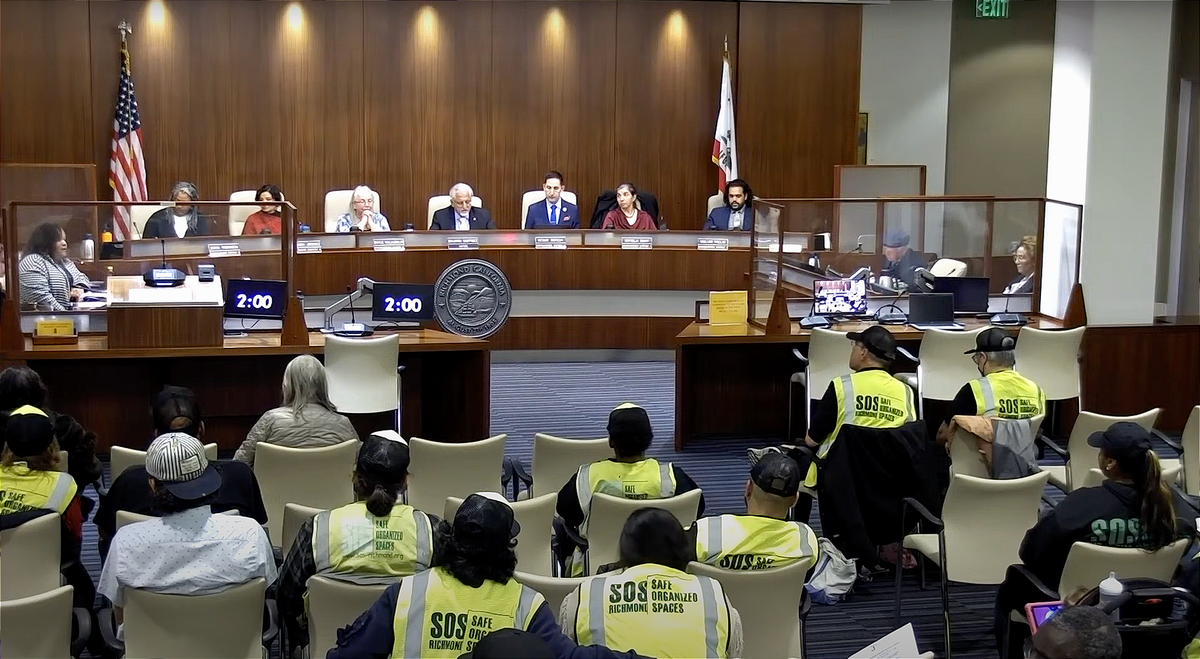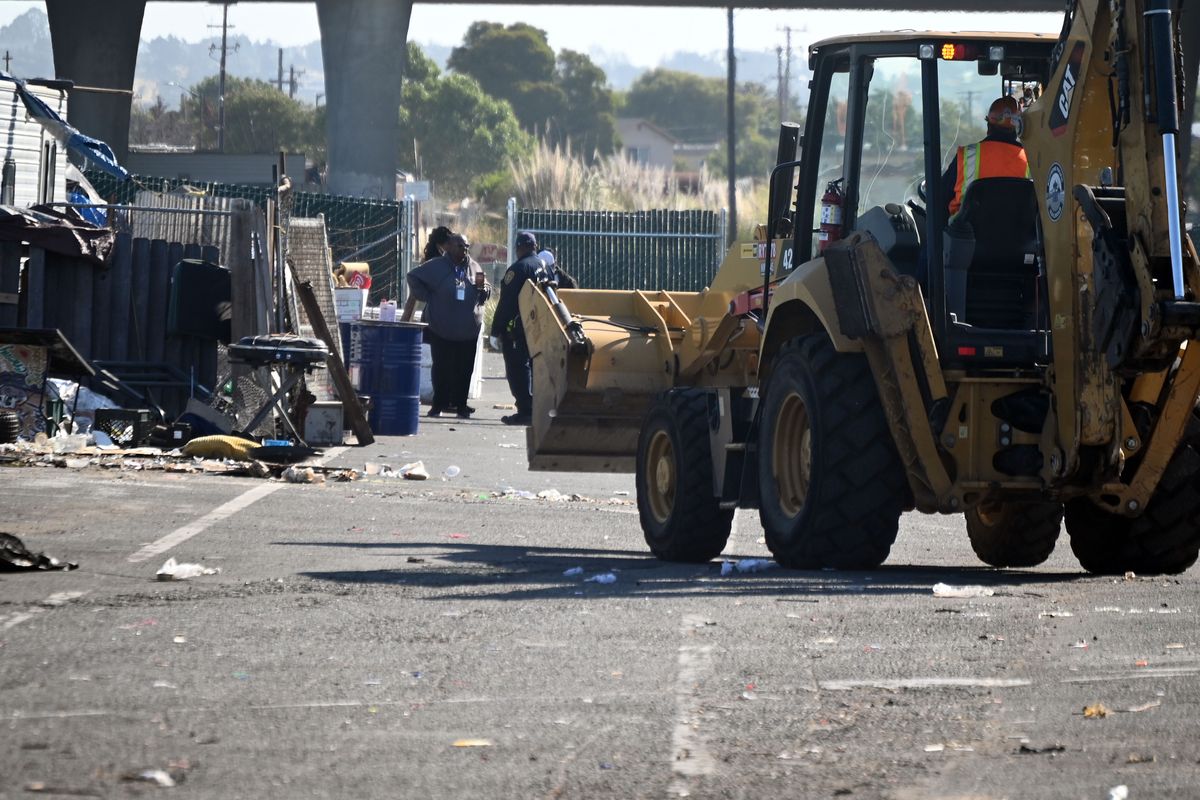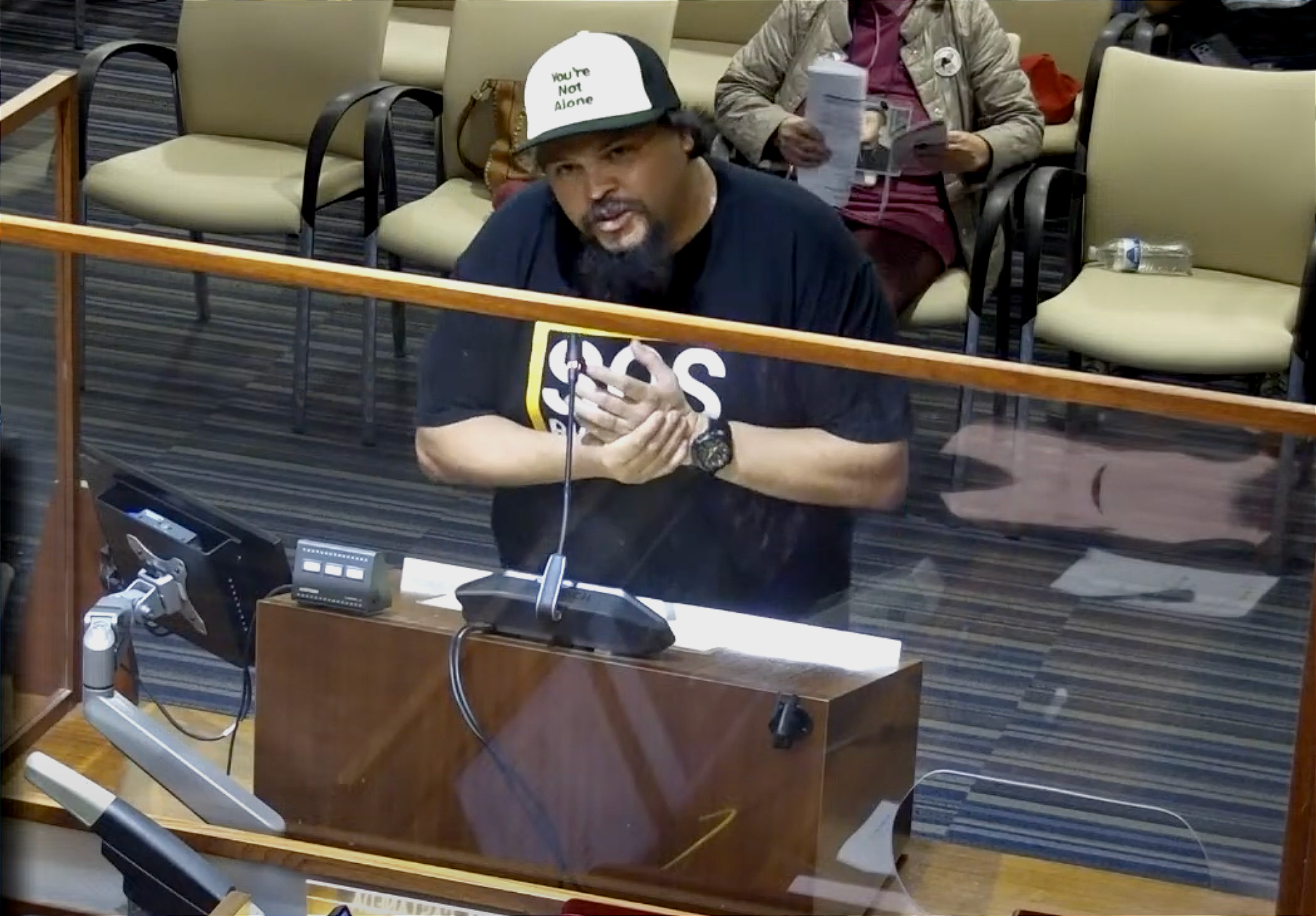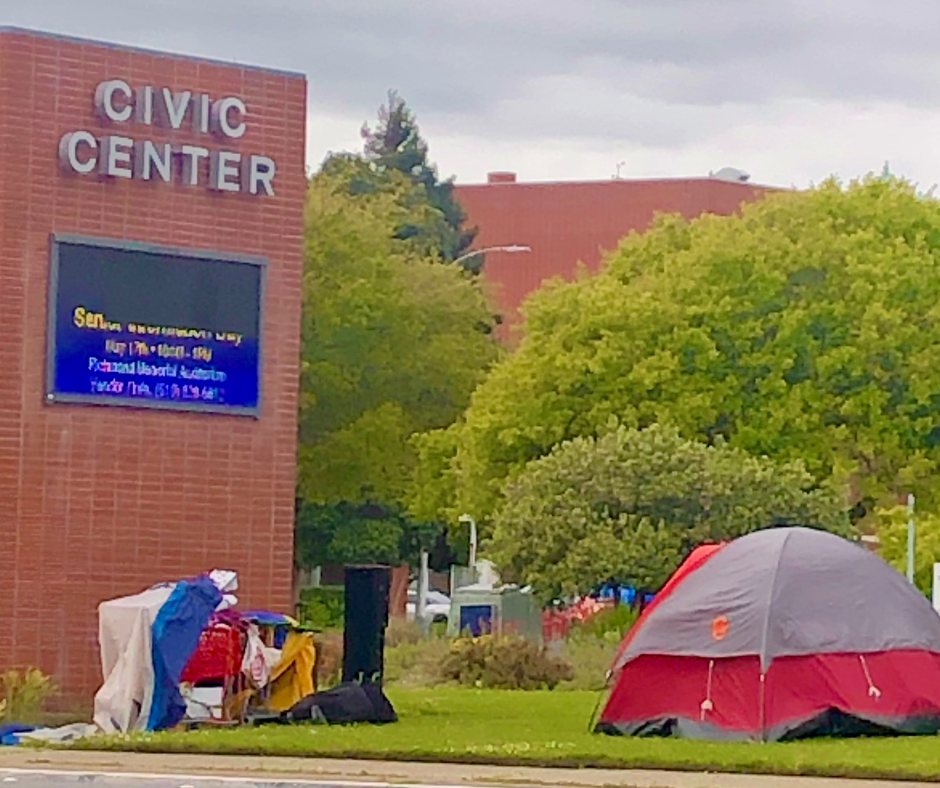

During last week's city council meeting, members of Richmond’s Safe Organized Spaces shared their personal accounts of how the organization has transformed their lives.
SOS staff members like Mernard Washington spoke about how the nonprofit organization’s programs have enabled them to turn their lives around.
Washington, a former Castro encampment resident who has worked for SOS for three years, said he would still be committing crimes and going to jail if it weren’t for SOS’s programs.
“They helped me see better in me,” Washington said.
 Grandview IndependentSoren Hemmila
Grandview IndependentSoren Hemmila
Washington said he successfully completed probation and had been on for 13 years. He will be the first mentor in SOS’s 90-day Job Readiness Program, the centerpiece of the Warm Hand Wellness and Resource Center launching on March 11.
The Warm Hands is designed to serve as a transitional space where individuals experiencing homelessness can access essential services. The aim is to provide support and resources to improve health, well-being, housing, and financial stability. SOS has asked for $2.7 million in funding from the city to scale its programs.
“I am thankful to them for giving me the opportunity to be a mentor for these young men. I pray to God that we can continue to keep this program going so we can help more people get off these streets and out of these jails and back to their families,” Washington said.
Buddy Bennett, a three-year employee of SOS and a member of the streets team, told the council how much SOS had helped him turn his life around.
“I was living in a cardboard dumpster area behind a gas station for three and a half to four years,” Bennett said. “I came to work for SOS, and I’ve been there ever since. If it wasn’t for my team, my coworkers, my second family, I don’t know where I would be right now.”
O’Neill Fernandez, Director of Programs for Safe Organized Spaces, said they are launching the 90-day program to develop essential skills for individuals who are living in encampments may require guidance in managing personal finances, paying rent, and other essential life skills.
“We have people that have been living in encampments for 20 years. Having employment is not normal to them. It is something we need to build,” Fernandez said. “Throwing you into that 40-hour-a-week job right out of an encampment is going to be hard.”

Members of the job-readiness program will be given part-time employment with SOS for at least 90 days to help them become confident and organized enough to apply for mainstream work.
Executive Director Daniel Barth said the former encampment residents who spoke at Tuesday night’s council meeting have worked for SOS and are equipped to handle the expansion.
“Elevating people to show up at the city council is a good example of putting a face on a situation,” Barth said. “One hundred percent of our field staff are unhoused or formerly unhoused from the encampments they serve.”
Over the next year, SOS aims to show that its members can work effectively with unhoused individuals from encampments and plan to establish a community of care that goes beyond the safety net offered by the county.
“What we are saying to the city, although people don’t believe us, is that unhoused folks have the capacity and expertise to run an organization that no one believes they can do,” Barth said. “No one believes this notation that someone who is unhoused is a whole person. They don’t get it.”
The wellness center will initially be located in a collection of tents and canopies at the SOS corporation yard on South Second Street.
“Why is it ok to not have a building and do a wellness center in a bunch of tents? Because the whole point of this wellness center that no one gets is that it needs to be a low enough barrier that people feel like it is theirs,” Barth said.
SOS members have provided the housekeeping for encampments in the greater Richmond area, providing trash removal, showers, and laundry services.
“That’s what they think of homeless folks: they can only perhaps provide basic housekeeping even if they don’t know how to do that in their own encampment. That’s the typical line of thinking that all of us basically have,” Barth said.
Improving people’s income and being able to pay for housing is at the crux of the matter for Barth.
“Housing sustainability is not possible without either a subsidy or people that can pay for their housing,” Barth said. “Of course, we have addiction and mental illness, but it is an economic problem, and it is a poverty issue first and foremost. It is a lack of opportunity issue, and it is a racism issue.”
SOS empowers people living in encampments to have opportunities that improve their health, income, and housing, Barth said.
“We have the competence to walk into those encampments and talk to folks, provide services at the encampment level and the street level and also help people out of the encampments,” Barth said. “We do that by employing folks, but we most of all do that by being in the encampments and creating trust.
Establishing trust and a sense of belonging is crucial before individuals can start working on a whole-person roadmap of housing, income, and personal development.
“It is peer-based work. It is a peer accompaniment from the encampment from tent to home. They can believe in us because we are their friends and are from the encampments,” Barth said.
Barth said authorities may enter encampments but will be seen as enforcement personnel. Service providers can visit a camp but focus solely on the service they provide. However, SOS can come in with a relationship-based approach.
SOS mapped out 200 encampments in Richmond and surrounding unincorporated areas in the last six months. Going street by street in all the different corners of Richmond, SOS counted 1,715 unsheltered people.
During last year's Contra Costa Health Services Point in Time Count 487 people without housing were observed in Richmond.
 Grandview IndependentSoren Hemmila
Grandview IndependentSoren Hemmila
The camps may have anywhere from two to 60 individuals in Richmond, unincorporated North Richmond, El Sobrante, Hilltop, Montalvin Manor, and Tara Hills neighborhoods.
“Of the 200 locations we actively serve about 25 on a weekly basis. Now we need to increase that eightfold, obviously,” Barth said.
SOS says with adequate funding, they can enhance the capabilities of individuals on the ground and support all of the encampments.
Barth said the Reimagining Public Safety Community Task Force recommended four programs to be funded as an alternative to criminalizing target populations in 2021.
“We were chosen even though we weren’t a 501(c)(3) nonprofit at the time. We were chosen to be the provider of those unhoused interventions. We’ve had major funding starting in 2021, and we are just beginning our third year of having that major funding, but now we need to diversify our funding and move behind the bounds of Richmond,” Barth said.
Help keep our content free for all!
Click to become a Grandview Supporter here. Grandview is an independent, journalist-run publication exclusively covering Richmond, CA. Copyright © 2024 Grandview Independent, all rights reserved.
